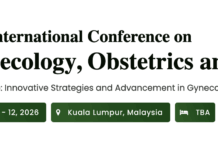- An active ingredient of magic mushrooms, Psilocybin, is a naturally occurring psychedelic.
- A new clinical trial by Johns Hopkins Medical Center investigated the effects of Psilocybin on Major Depressive Disorder.
- 71% of the participants showed a significant reduction in their symptoms at the four-week follow-up.
Psilocybin is a psychedelic generally used for recreational and spiritual purposes. However, in recent years it has become a source of interest for researchers treating mental health conditions. In 2016, researchers at John Hopkins showed the effectiveness of a single dose of the hallucinogen in reducing anxiety and depression in cancer patients.
Therefore, Professor Roland Griffiths decided to test the treatment on patients with major depressive disorder. Major Depressive Disorder (MDD) affects over 300 million people worldwide. Moreover, it is the most commonly diagnosed form of depression.
Psilocybin – The Magic in Magic Mushrooms
The team of researchers recruited 24 participants with a history of MDD, for the study. Prior to the clinical trial, the patients were tapered off antidepressants with the help of their physician. Treatment consisted of two doses of Psilocybin given two weeks apart. Additionally, the participants underwent 11 hours of psychotherapy sessions along with the treatment.
They have a blindfold on, they have headphones on, listening to music. And we really encourage them to go inward and to kind of experience whatever is going to come up with the psilocybin.
Alan Davis, Ph.D., Johns Hopkins University School of Medicine.
Half of the participants received their first dose immediately while the rest, part of a comparison group, received it 8 weeks later. Researchers used the GRID-Hamilton Depression Rating Scale for assessing the severity of depression in participants. They completed the assessment upon enrollment, at one and four weeks after completion of treatment.
The findings of the trial have been published in the journal, JAMA Psychiatry.
More Than 50% Reduction in Symptoms
At the one-week follow-up, 67% of the participants showed a reduction in their symptoms. Whereas, 71% reported a significant reduction at the four-week follow-up. Moreover, 54% of the participants entered remission four-weeks post-treatment.
The magnitude of the effect we saw was about four times larger than what clinical trials have shown for traditional antidepressants on the market. Because most other depression treatments take weeks or months to work and may have undesirable effects, this could be a game-changer if these findings hold up in future ‘gold-standard’ placebo-controlled clinical trials.
Alan Davis, Ph.D., Johns Hopkins University School of Medicine.
The Why and How of the Psilocybin treatment remains a ‘dark mystery’ according to Dr. Roland Griffiths, director of the Johns Hopkins Center for Psychedelic and Consciousness Research. He plans on exploring the effects of Psilocybin in comorbid conditions and concurrent depression.
Most conventional treatments of depression can cause chronic side effects and require long-term use. Therefore, researchers believe Psilocybin can be a promising option for chronic forms of depression.
Currently, the team is following the participants for a year to investigate the long-term antidepressant effects of the treatment. They’ll report the findings of the investigation in a later study.
Reference:
Davis AK, Barrett FS, May DG, et al. Effects of Psilocybin-Assisted Therapy on Major Depressive Disorder: A Randomized Clinical Trial. JAMA Psychiatry. Published online November 04, 2020. doi:10.1001/jamapsychiatry.2020.3285
Griffiths RR, Johnson MW, Carducci MA, et al. Psilocybin produces substantial and sustained decreases in depression and anxiety in patients with life-threatening cancer: A randomized double-blind trial. Journal of Psychopharmacology. 2016;30(12):1181-1197. doi:10.1177/0269881116675513




